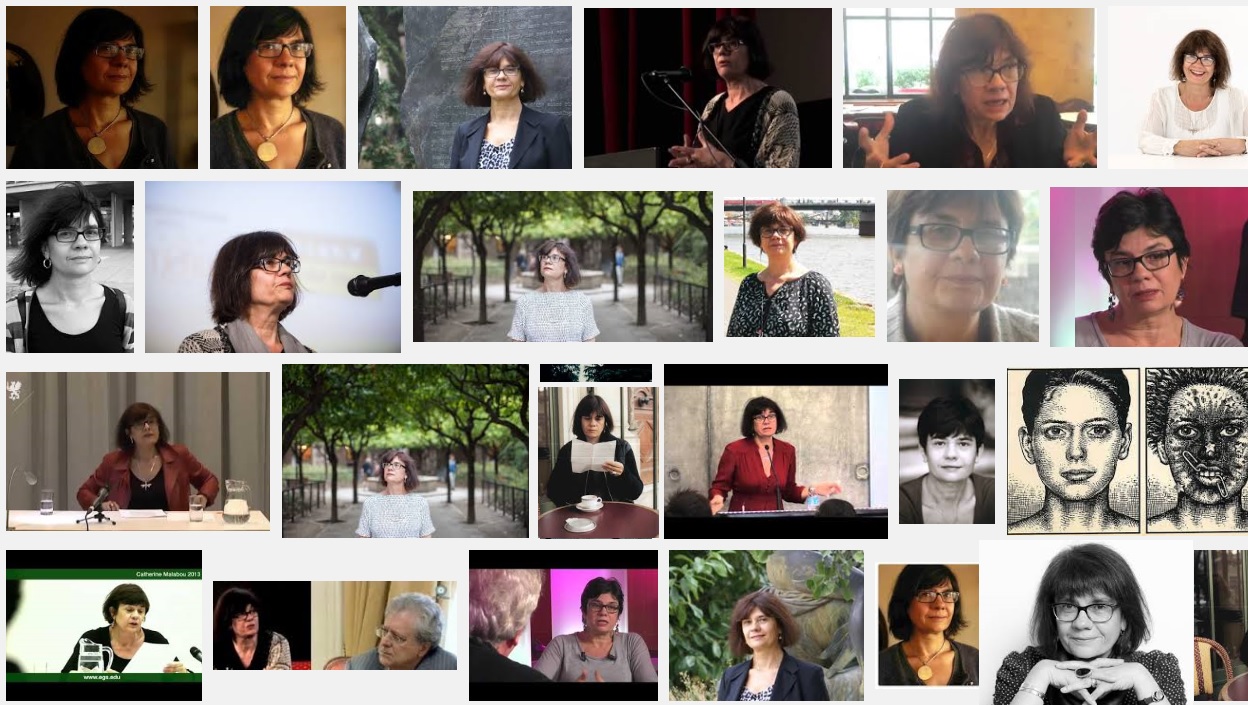Om even te noteren: Catherine Malabou...
... is working on a critical approach of immanence, implying a new reading of Spinoza.
Gezien op de website van de Division of Philosophy, Art & Critical Thoughts aan The European Graduate School, waarop uitgebreid over haar werk en ideeën te lezen is. Om in de gaten te houden. [cf. wiki]

Toegevoegd
NOËLLE VAHANIAN (Lebanon Valley College) had een interview met CATHERINE MALABOU (University of Paris X-Nanterre), gepubliceerd als A CONVERSATION WITH CATHERINE MALABOU in Journal for Cultural and Religious Theory, Winter 2008 [cf. PDF]
Thomas Wormald, Sculpted Selves, Sculpted Worlds: Plasticity and Habit in the Thought of Catherine Malabou.Master of Arts thesis, sept. 2014 [cf. PDF]
Catherine Malabou, "Before and Above: Spinoza and Symbolic Necessity." Critical Inquiry 43 (1): 84-109 (2016)
Abstract: In Spinoza, God is without a name and without a shape. His essence is the very form of the necessity of nature, the infinite regularity, actuality and rationality of what there is. Nothing good, nothing bad in this. All representations of God as a legislator, a creator or a father, endowed with intentions, are only human projections produced by an inadequate understanding of what a cause is. A true cause is never separated from its effect, but is immanent to it, which means that it remains within it. As cause of himself, that is of nature, God is nothing but his own effectuation, and in that sense, he cannot be said transcendent, that is external, to what he produces. Are the readings of Spinoza that characterize him only as a thinker of “immanence” and/or “self-regulation” totally fair though? Do they do justice to the major issue of the origin of the sacred as developped in the Theological-Political Treatise? Where does sacredness come from for Spinoza? Can it be reduced to a sheer error or illusion, a temporary hole in the tissue of immanence, or does it open a specific space in immanence that remains to be explored? What exactly are the relationships between necessity and faith, between truth and its irreducible symbolic dimension? And what does “symbolic” means there where God is impersonal? Following Spinoza scriptural hermeneutics, and discussing it also with thinkers like Levinas, we will develop a new approach to Spinoza’s concept of revelation, pertaining to his vision of the sacred as an economy of signs without a referent. In doing so, we would like to show that Spinoza’s critique of religious dogmatism or fanatism is not to be confused with the dismissal of the sacred, it is on the contrary propedeutical to the philosophical delineation of sacredness.[Cf.]


Reacties
Misschien aardig om weten. Haar boek 'Self and emotional life' geschreven met Adrian Johnston gaat in op neurobiologie en het brein, maar ook over Descartes, Derrida, Spinoza, Damasio, Deleuze en Lacan.
ed 26-07-2016 @ 15:21